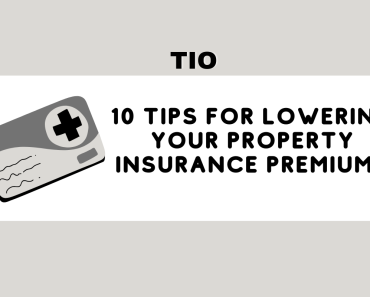Property insurance is a type of insurance that provides financial protection to individuals or businesses for damage or loss of their property. Property insurance covers a wide range of properties, including homes, vehicles, and businesses. In this article, we will focus on property insurance for homes, which is also known as homeowners insurance. We will discuss what property insurance covers, what it does not cover, and factors that affect property insurance coverage.
Types of Property Insurance
There are several types of property insurance, each tailored to cover specific types of property. The most common types of property insurance are:
Homeowners Insurance
Homeowners insurance is a type of property insurance that covers the structure of a home and personal belongings in case of damage or loss due to covered events. Covered events typically include theft, fire, windstorm, hail, and lightning. Homeowners insurance also provides liability protection in case someone gets injured on the property.
Renters Insurance
Renters insurance is similar to homeowners insurance, but it is designed for renters. It covers personal belongings and liability protection in case someone gets injured while on the rented property. It does not cover the structure of the building since that is the responsibility of the landlord.
Condo Insurance
Condo insurance covers personal belongings and the structure of a condominium unit. It also provides liability protection in case someone gets injured on the property.
Flood Insurance
Flood insurance is a type of property insurance that covers damage or loss due to flooding. This type of insurance is typically required for properties located in flood-prone areas.
Earthquake Insurance
Earthquake insurance covers damage or loss due to earthquakes. This type of insurance is typically required for properties located in earthquake-prone areas.
Fire Insurance
Fire insurance covers damage or loss due to fire. This type of insurance is typically included in homeowners insurance policies.
What Does Property Insurance Cover?
Property insurance typically covers the following:
Structure of the Building
Property insurance covers the cost of repairing or rebuilding the structure of the building in case of damage or loss due to covered events. Covered events typically include theft, fire, windstorm, hail, and lightning.
Personal Belongings
Property insurance covers the cost of repairing or replacing personal belongings in case of damage or loss due to covered events. Personal belongings can include furniture, clothing, electronics, and jewelry.
Liability Protection
Property insurance provides liability protection in case someone gets injured on the property. Liability protection covers the cost of legal fees, medical expenses, and other costs associated with a lawsuit.
Additional Living Expenses
Property insurance covers the cost of additional living expenses in case the property is uninhabitable due to covered events. Additional
living expenses can include hotel bills, restaurant meals, and other necessary expenses incurred while the property is being repaired or rebuilt.
Loss of Use
Property insurance also covers loss of use, which refers to the cost of renting a temporary residence while the damaged property is being repaired or rebuilt.
Factors that Affect Property Insurance Coverage
Several factors can affect property insurance coverage, including:
Location
The location of the property can affect property insurance coverage. Properties located in areas with a high risk of natural disasters, such as hurricanes or earthquakes, may require additional coverage.
Age and Condition of the Property
The age and condition of the property can also affect property insurance coverage. Older properties or properties in poor condition may require additional coverage or higher premiums.
Type of Coverage
The type of coverage selected can affect property insurance coverage. Basic coverage may not provide sufficient protection, while additional coverage may result in higher premiums.
Deductibles
Deductibles can also affect property insurance coverage. A higher deductible typically results in lower premiums, but it also means that the policyholder will pay more out of pocket in case of a claim.
Credit Score
Credit score can affect property insurance coverage. A higher credit score typically results in lower premiums, while a lower credit score may result in higher premiums.
What is Not Covered by Property Insurance?
While property insurance covers a wide range of events, there are some events that are typically not covered. These events include:
Intentional Damage
Property insurance does not cover damage caused intentionally by the policyholder or anyone else.
Wear and Tear
Property insurance does not cover damage caused by normal wear and tear.
Acts of War
Property insurance does not cover damage caused by acts of war or terrorism.
Business Losses
Property insurance does not cover losses incurred by a business conducted on the property.
Nuclear Accidents
Property insurance does not cover damage caused by a nuclear accident.
Conclusion
Property insurance is an important type of insurance that provides financial protection to individuals or businesses for damage or loss of their property. Understanding what property insurance covers, what it does not cover, and factors that affect property insurance coverage is essential to making informed decisions about property insurance.
FAQs
- What is the difference between homeowners insurance and renters insurance?
- Homeowners insurance covers the structure of the home and personal belongings, while renters insurance covers personal belongings only.
- Is flood insurance required for all properties?
- Flood insurance is typically required for properties located in flood-prone areas.
- Can property insurance cover damage caused by earthquakes?
- Yes, earthquake insurance is available as a separate policy.
- What is a deductible in property insurance?
- A deductible is the amount that the policyholder is responsible for paying out of pocket in case of a claim.
- Does property insurance cover damage caused intentionally by the policyholder?
- No, property insurance does not cover damage caused intentionally by the policyholder or anyone else.








